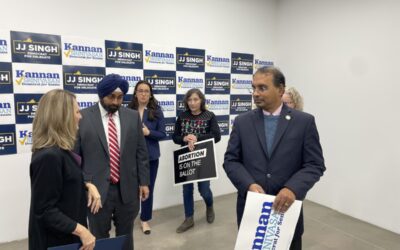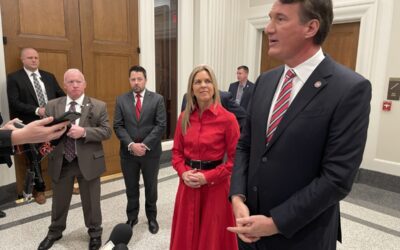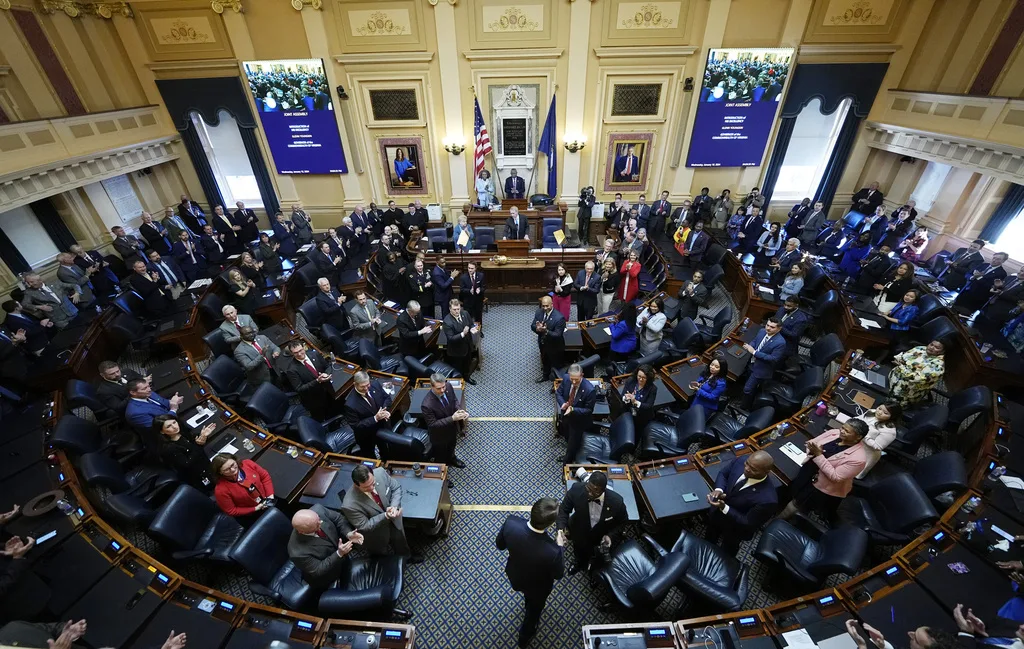
Virginia Gov. Glenn Youngkin, bottom center, shakes the hand of Del. Cliff Hayes, D-Chesapeake, right, as he arrives in the House chambers to deliver his State of the Commonwealth address before a joint session of the Virginia General Assembly at the Capitol, Wednesday, Jan. 10, 2024, in Richmond, Va. (AP Photo/Steve Helber)
This week marks a sort of halftime in the Virginia legislative session: crossover. It’s a word that gets thrown around a lot while the General Assembly is in session, but what is it? And why does it matter?
“Crossover Day” in the Virginia General Assembly is the day in the legislative session bills must pass by in their respective chambers in order to be considered in the other chamber. In other words, a bill must pass in the House of Delegates before it can even be considered in the Senate, and vice versa. This year, that day is Feb. 13. If a bill doesn’t pass one chamber by then, it’s done for the year.
After crossover, the only bills each chamber can consider must have already passed the other legislative chamber–the Senate can only hear House bills, and the House can only hear bills that have already passed the state Senate. This year, the General Assembly will wrap things up on March 9.
As a bit of a reminder on Virginia’s legislative process, a bill is first introduced by its “chief patron” (or legislator) when the General Assembly convenes in January. The bill then gets assigned to a committee, and then sometimes a subcommittee, where it will either languish via a parliamentary maneuver or be reported to the full House or Senate, where it will be either passed or defeated. If a bill passes both legislative chambers, it is sent to the governor’s desk, where they will either veto it, sign it into law, or allow it to become law without their signature.
As Virginia approaches 2024’s crossover, the state’s government is in a much different place than it was this time last year. After campaigning on abortion rights and winning back control of the House of Delegates in November, Democrats now control both chambers of the state legislature.
Democrats have used the first half of the commonwealth’s legislative session to reject abortion bans and increase access to contraception, pass bills to raise the state’s minimum wage, and push others to raise teacher pay. They’ve also advanced gun reform, gone after the high price of prescription drugs, passed bills to eliminate legacies admissions at the state’s public colleges and universities, and more.
The next step in determining whether all these bills become law depends on what happens tomorrow.
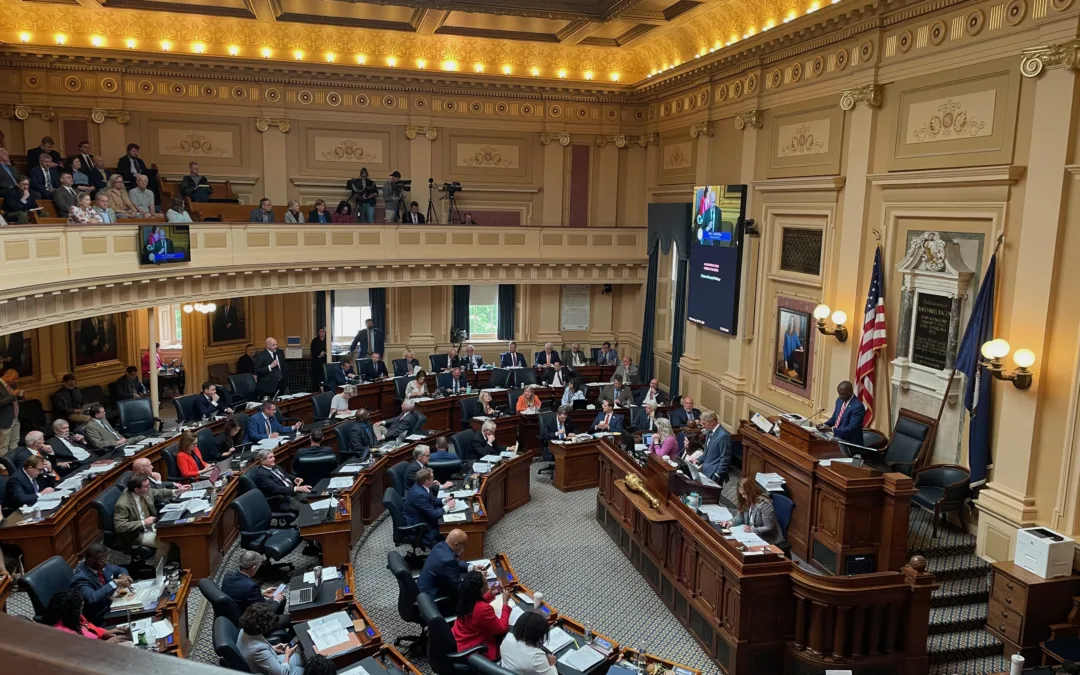
Dems throw more weight behind competitive Virginia House races
Virginia Democrats are looking to build on their majority in the House of Delegates this fall. A national Democratic political group is continuing...
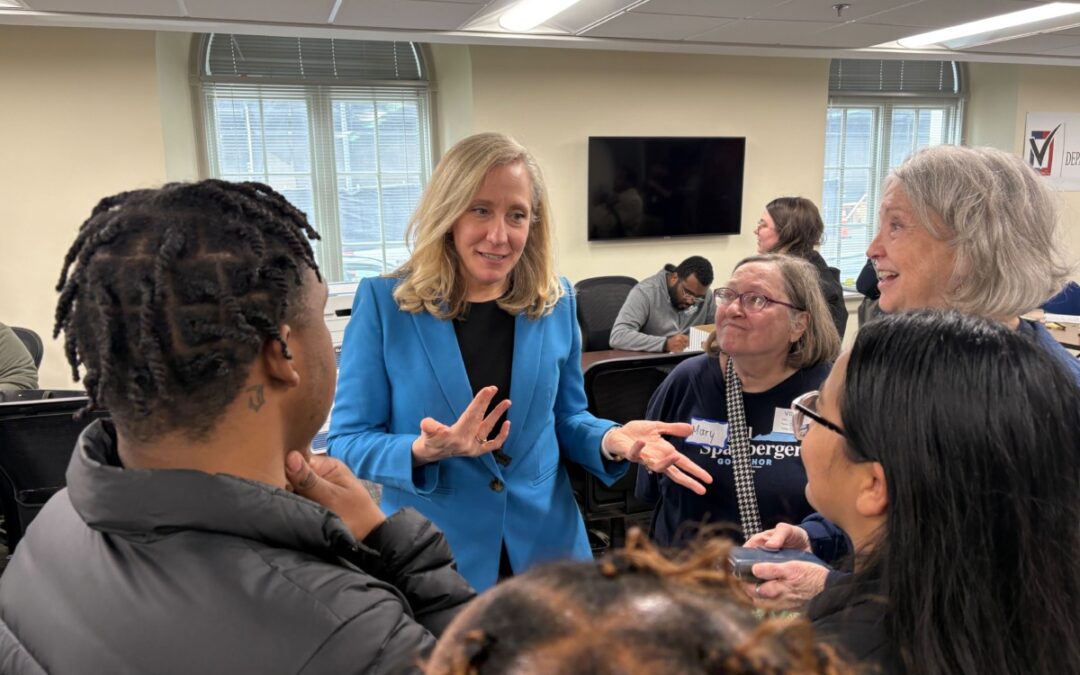
Spanberger, Earle-Sears officially declared nominees for Virginia governor’s race
It is now up to each candidate to win over an electorate on edge because of Elon’s Musk attacks on federal workers, the Trump administration’s...

Virginia is not for workers: Youngkin vetoes minimum wage increase, paid leave
“I’m still fighting to choose between school or putting food in my fridge,” Jonei Battle, a Richmond teacher’s aide and restaurant worker, said....

‘The Senate was for the tea!’: A young reporter’s review of her first time covering Virginia’s General Assembly
As a budding reporter, every beat I cover is a whole new world! Come along with me to my first General Assembly session. My first time covering...

Virginia Dems advance budget items focused on helping with high prices
Democrats in Virginia’s General Assembly will eventually have to negotiate a final package of budget amendments with Republican Gov. Glenn Youngkin....

Virginia House, led by Dems, advances three constitutional amendments
The resolutions now go to the Virginia Senate as part of a two-year process that culminates in a statewide referendum. The Virginia House of...


